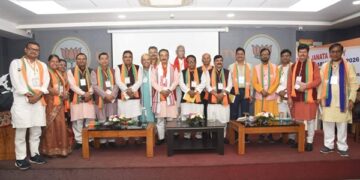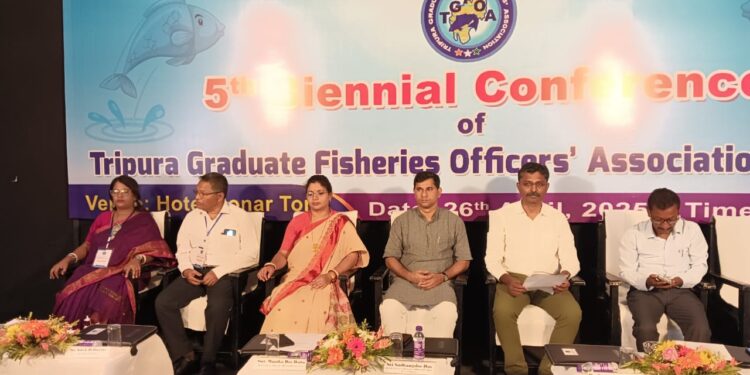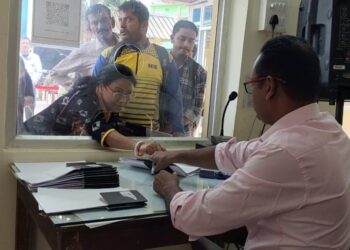Agartala: April 26: In the serene landscapes of Tripura, an ambitious initiative is underway as the state strives to enhance its fish production capabilities. Spearheaded by Fisheries Minister Sudhangshu Das, these efforts target self-sufficiency in a sector that is not just critical for local sustenance but also plays a vital role in the state’s economic fabric. Currently, Tripura’s fish production stands at approximately 85,000 metric tonnes (MT) annually, significantly lower than the total demand of about 1,17,000 MT. This gap has prompted the state government to explore innovative solutions to meet its fish requirements sustainably.
One of the most promising strategies being implemented involves leveraging abandoned and underutilized water bodies for fish cultivation. This creative approach allows for the expansion of aquaculture without necessitating the establishment of extensive new infrastructure, thereby promising a cost-effective solution to bolster production. The initiative is not only economically significant but also aligns with sustainable development practices, as the revitalization of these water resources can positively impact local ecosystems and biodiversity.
Minister Sudhangshu Das has been vocal about his confidence in the state’s fisheries officers, who are integral to the success of these initiatives. Their expertise and commitment are seen as pivotal in transforming plans into tangible results that can benefit both local communities and the state’s economy. The proactive measures taken reflect a broader understanding of the importance of food security and nutritional needs in the region.
In his recent address, Minister Das placed these efforts within a national framework, underlining that bolstering fish production contributes to the overarching goal of national development. His call to action resonated with the theme of “Nation First,” emphasizing that the push for increased output is not solely about satisfying local demand but fulfilling a responsibility to the nation. This perspective fosters a collective sense of purpose among stakeholders, from government officials to local fish farmers.
To further enhance its fish farming capacity, Tripura has submitted several fisheries development projects to the central government for approval. These proposals, if approved, have the potential to significantly amplify the state’s ability to increase production, create employment opportunities, and reduce reliance on fish imports. Access to additional funding and resources will empower local fish farmers to adopt modern techniques and improve the overall quality of fish produced in the region.
As these initiatives gain traction, Tripura’s approach may serve as a model for other states dealing with similar challenges in fish production. The synergy of innovation, effective policy, and grassroots action presents an opportunity to not only improve local food security but also create a vibrant aquaculture industry that can stand the test of time.
The journey towards self-sufficiency in fish production is marked by a commitment to sustainability, economic growth, and national pride. The unfolding events in Tripura showcase the potential for transformative change in the fisheries sector. As the state moves forward, it will be essential to monitor these developments, paying close attention to the intersection of environmental stewardship and agricultural advancement. With its strategic vision, Tripura is poised to make waves in the arena of fish farming, ensuring a secure and prosperous future for its citizens.








































